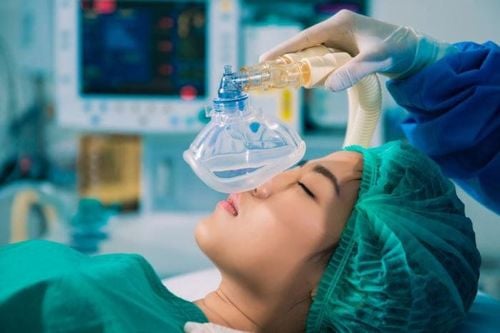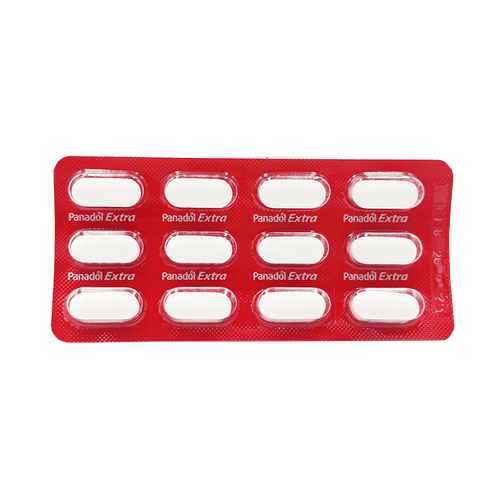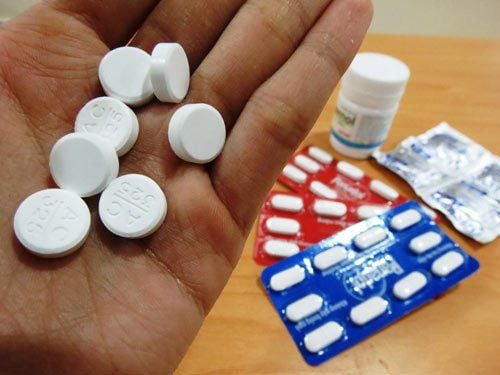This is an automatically translated article.
There are many measures to help the body stay awake, in which the use of drugs is a quite effective option. Alertness Aid drug is one of the drugs that help users become more awake, anti-drowsy very effectively. So what is the anti-drowsy drug Alertness Aid?
1. What is the effect of Alertness Aid?
Alertness Aid drug is essentially caffeine, which is considered a drug to help stay awake or can be understood as a drug against drowsiness or fatigue. The caffeine in Alertness Aid is a mild stimulant. However, Alertness Aid should not be used at times when it is necessary to maintain continuous sleep. At the same time, this sobering drug is contraindicated for children under 12 years of age.
2.How to use Alertness Aid thuốc
Alertness Aid anti-drowsy medication to be taken orally according to the directions on the package or as directed by your doctor. Users should carefully follow the instructions for use of the drug. If you have any questions regarding the use of Alertness Aid, consult your doctor or pharmacist. Because this is a drug that helps to stay awake, it should only be used in cases where it is absolutely necessary, not a drug used regularly or taken every day. Although the risk is very low, using Alertness Aid can lead to habit formation or addiction. Therefore, do not arbitrarily increase the dose, use it repeatedly or use it regularly for a long time.

Thuốc Alertness Aid là thuốc giúp tỉnh táo
At the same time, the long-term use of Alertness Aid drug may lose its effectiveness, also known as drug habituation. Inform your doctor if the effect of Alertness Aid medicine is no longer the same. start using.
3.Alertness Aid side effects
Adverse effects of Alertness Aid may occur, including:
Nausea, vomiting; Stomach upset; Difficulty sleeping; Urinate many times.

Khi dùng thuốc có thể gây ra một số tác dụng phụ như khó ngủ
If any of the above effects persist or worsen, notify your doctor and get immediate treatment. If the patient has been prescribed by a doctor to use Alertness Aid, it means that they have assessed the benefits to outweigh the risks of side effects.
Rare but serious side effects of Alertness Aid include:
Dizziness; Mental or mood changes such as stress, excessive agitation; Trembling limbs; Fast or irregular heartbeat. Rarely, the use of Alertness Aid can cause a very serious allergic reaction. However, get medical help right away if you develop a rash, itching, swelling (especially of the face, lips, tongue, or throat), severe dizziness, or trouble breathing after using Alertness Aid.

Trường hợp bị khó thở sau khi sử dụng thuốc Alertness Aid cần đưa bệnh nhân đến bệnh viện ngay
4. Precautions for Alertness Aid side effects
Before taking Alertness Aid, tell your doctor or pharmacist if you have a history of allergy to caffeine or a history of allergy to other xanthine-type drugs (e.g. theophylline). In addition, patients should tell their doctor or pharmacist their medical history, especially of heart disease (e.g. irregular heartbeat, recent heart attack), high blood pressure , stomach ulcers, intestinal ulcers, mental disorders, mood swings (eg, anxiety, stress).
Before surgery or before certain medical procedures (for example, a patient is in the process of returning to a normal heart rate if the patient has previously had an abnormally fast heart rate), tell your doctor about all of your health conditions, including the use of prescription drugs, over-the-counter medicines, and herbal medicinal products.
Elderly people are very sensitive to the side effects of Alertness Aid, especially trouble sleeping when using the drug. Therefore, when it is prescribed to use the drug, this subject needs to be very careful. During pregnancy, Alertness Aid should be used only when clearly needed or when the benefits outweigh the possible risks. Alertness Aid may pass into breast milk, use extreme caution and consult your doctor before using it in a nursing woman.

Phụ nữ đang cho con bú không nên sử dụng thuốc Alertness Aid
5.Alertness Aid drug interactions
Drug interactions can change the way Alertness Aid works or increase the risk of serious side effects while taking it. Report a list of all products the patient is taking (including prescription, over-the-counter, herbal medicines) to the treating physician. Do not start, stop or change the dosage of any medication taken with Alertness Aid without your doctor's approval.
Avoid drinking large amounts of caffeinated beverages (coffee, tea, some sodas) or eating large amounts of chocolate while taking this medicine. Alertness Aid may affect the results of certain tests including: urine VMA/catecholamine tests, dipyridamole-thallium scintigraphy, which may lead to false test results. To prevent this from happening, patients should proactively inform laboratory staff and doctors when the patient has used this drug.
Alertness Aid drug works to help patients stay awake, anti-drowsy. For the medicine to work best, the patient must follow the doctor's instructions.
Please dial HOTLINE for more information or register for an appointment HERE. Download MyVinmec app to make appointments faster and to manage your bookings easily.
Reference source: webmd.com












